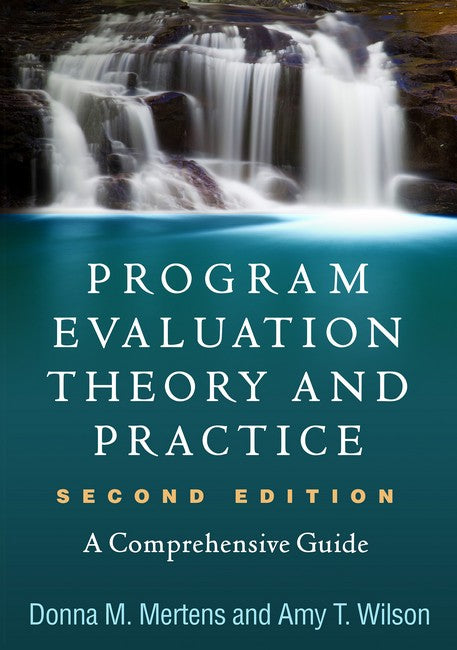Description
I. . The Landscape of Evaluation
1. Introduction to Evaluation: Defining Terms and Ethical Considerations
2. Framing Evaluation: Paradigms, Branches, and Theories
II. Historical and Contemporary Evaluation Paradigms, Branches, Theories, and Approaches
3. The Postpositivist Paradigm and the Methods Branch
4. The Pragmatic Paradigm and the Use Branch
5. The Constructivist Paradigm and the Values Branch
6. The Transformative Paradigm and the Social Justice Branch
III. Planning Evaluations
7. Working with Stakeholders: Establishing the Context and the Evaluand 
8. Evaluation Purposes, Types, and Questions
9. Evaluation Designs
10. Data Collection Strategies and Indicators
11. Stakeholders, Participants, and Sampling
12. Data Analysis and Interpretation
IV. Implementation in Evaluation: Communication and Utilization of Findings, Management, Meta-Evaluation, and Challenges
13. Communication and Utilization of Findings
14. Meta-Evaluation and Project Management
15. Perennial and Emerging Issues in Evaluation
Abbreviation Dictionary
Glossary
References
Donna M. Mertens, PhD, is Professor Emeritus in the Department of Educational Foundations and Research at Gallaudet University, where she taught advanced research methods and program evaluation to deaf and hearing students. She received the Distinguished Faculty Award from Gallaudet. The primary focus of her work is transformative mixed methods inquiry in diverse communities, with priority given to the ethical implications of research in pursuit of social justice. A past president of the American Evaluation Association (AEA), Dr. Mertens provided leadership in the development of the International Organization for Cooperation in Evaluation and the establishment of the AEA Diversity Internship Program with Duquesne University. She has received AEA’s highest honors for service to the organization and the field, as well as for her contributions to evaluation theory. She is the author of several books and is widely published in major professional journals. Dr. Mertens conducts and consults on evaluations in many countries, including Chile, Japan, Sri Lanka, Guatemala, Egypt, India, South Africa, Botswana, Israel, Australia, New Zealand, and Costa Rica.

